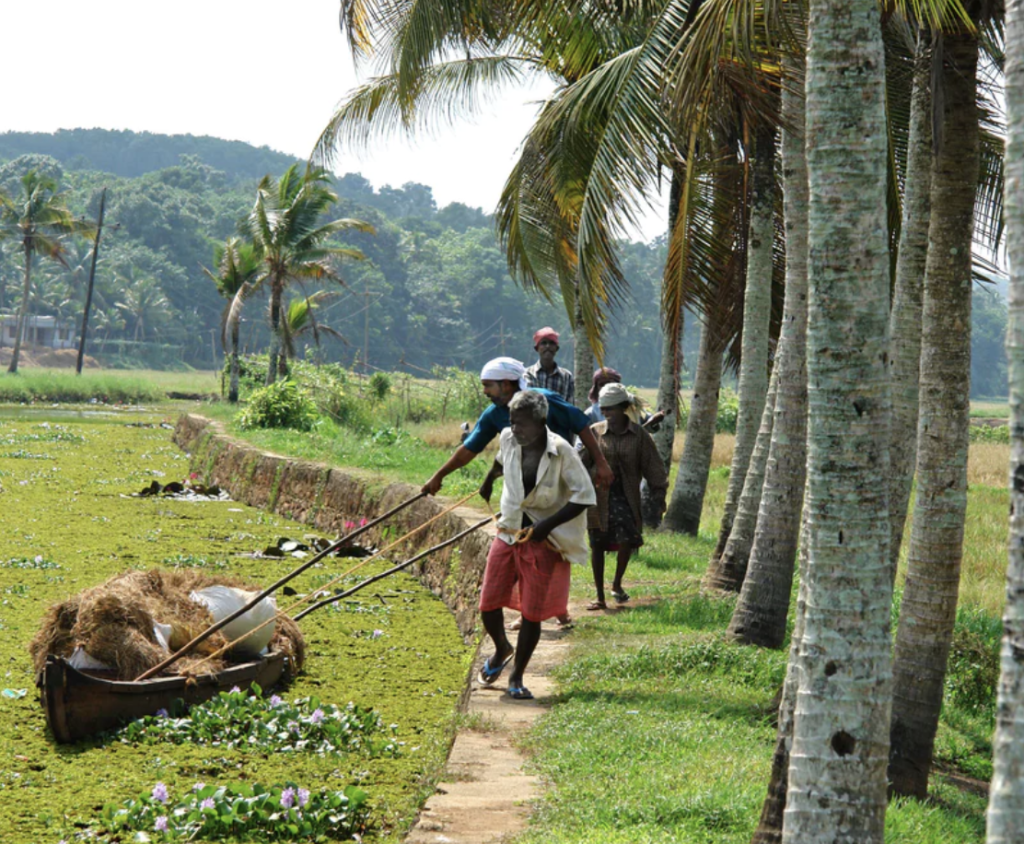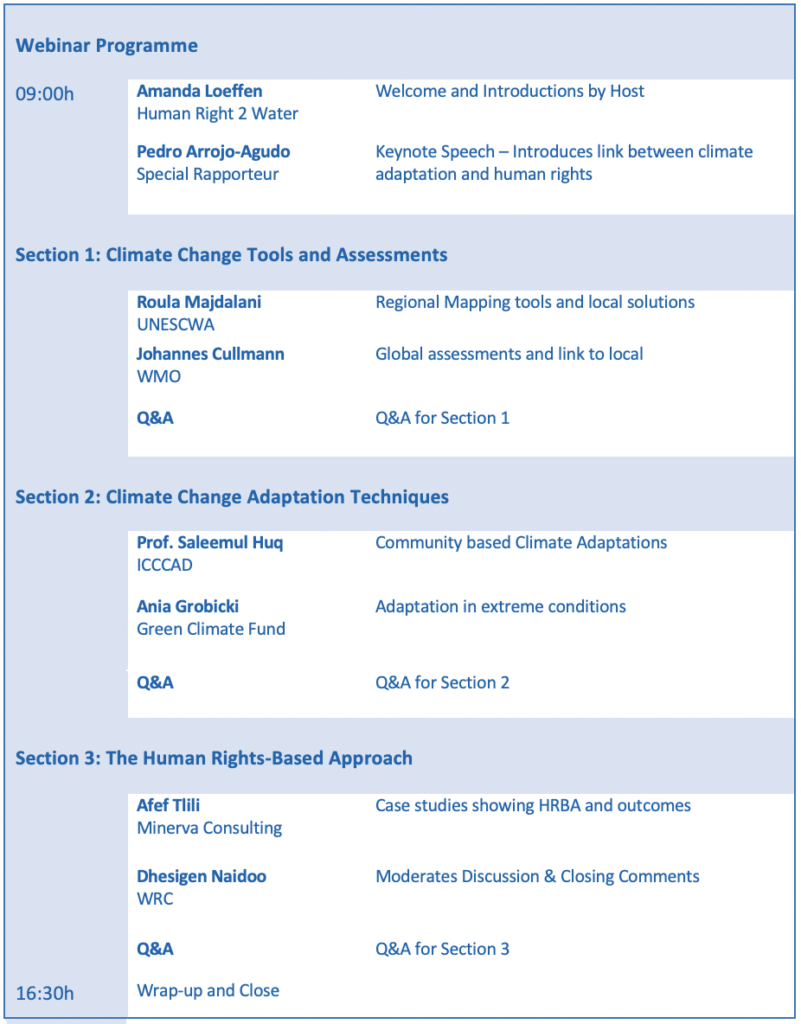Webinar on 3rd February 2021, 09:00h-10:30h CET
Click here to register in advance
Read more about our panellists here
“Climate change affects ecosystems, human societies and economies in a variety of ways, and water is the primary medium through which these impacts are felt”, United Nations World Water Development Report 2020, Water and Climate Change.
Climate change is a global phenomenon, and for many people it can be considered too remote from their daily lives for their own efforts in mitigation to be meaningful. However, the need for sufficient and safe drinking water, and for protection of our water bodies against pollution and contamination, are localised issues, and ones that most people can appreciate.
Climate adaptation requires people to work at river basin and local levels to improve the management and governance of water resources to adjust to current or expected climate changes and its effects. Good water management, including the protection of the environment, and the integration of nature-based solutions (for example), can be used to improve the quality and availability of water resources at a local level.
Such practices can help with the more obvious climate impacts, including increasing frequency of storms, floods, and droughts. The water-related impacts of climate change also include negative effects on food security, human health, energy production, and biodiversity. The effects are typically hardest felt by the world’s most vulnerable women, men and children. The net effects can result in rising societal inequities, social unrest, mass migration and conflict.

The Human Rights Based Approach provides a process and a legal methodology for inclusion of all people, for non-discrimination, participation, sharing of data, and accountability. By taking into account the needs and rights of all vulnerable groups, and including them in the decision-making process, a sustainable solution is more likely to be supported.
The many competing—and sometimes conflicting—demands on water resources will give rise to questions of equity and justice, such as what would be considered to be a ‘fair’ or ‘balanced’ allocation of water for competing uses. The human rights system offers an important entry point for such questions of justice, and a process for establishing priorities.
This webinar examines some of the tools and case studies connected with how to connect local communities with solutions for climate adaptation. It especially explores the importance of integrating the human rights based approach and encourages more inclusive management of water rights.



